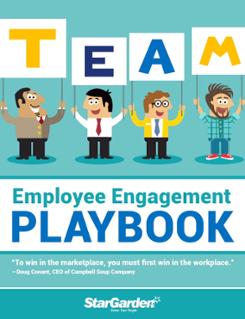5 Tips for Effectively Managing Employee Performance

Managing employee performance can help businesses to maximize productivity and can help to prevent unfair dismissal claims. Employee performance can make a business great or can cause untold damages. There is no one-size-fits-all trick to effectively manage employee performance, since every company is different, but the following tips can generally help supervisors with employee performance management, regardless of the size of the business or the industry that it operates in.
1. Clearly Communicate Goals and Expectations
It is important to set goals and communicate expectations with employees right from the time of hire. When employees understand what is expected, it can help them to feel more empowered and to work autonomously toward goals. If expectations are communicated and employees do not meet those expectations, supervisors can also easily remind employees of the expectations that were outlined and can point out exactly how those expectations are not being met and what needs to be done to improve.
2. Provide Regular and Ongoing Feedback
Employees should be given regular feedback about their performance, much more often than once or twice per year. Communicating with employees on a weekly or monthly basis to highlight great performance and point out ways or instances where performance could be improved benefits employees and employers. Employees generally don’t want to underperform, but they may not know how to improve or what aspects of performance need improvement.
3. Use Best Practices to Manage Underperformance as Necessary
The Office of the Fair Work Ombudsman provides a best practice guide for managing underperformance that includes the following steps:
- Identify the problem
- Assess and analyze the problem
- Meet with the employee to discuss the problem
- Jointly devise a solution
- Monitor employee’s performance
4. Track Employee Performance – Whether Good or Bad
Tracking employee performance on an ongoing basis, whether there are issues or not, can make it easy to fill out performance appraisals and can serve as documentation if an employee has to be terminated due to performance. If employee information is stored in an electronic database, as with HR software, performance information will be easier to organize and easier to find when it is needed. Making notes at certain times, like once a week or after projects are completed, can help to ensure that regular records are kept and performance information is always up to date.
5. Provide Continuous Support and Development Opportunities
Providing opportunities for employees to continuously train and learn new skills, as well as support for employees to find answers to questions about their current job tasks and assignments, can help to minimize performance issues and can improve employee job satisfaction. Depending on the place of employment and the type of work, a mentor or coach may help employees to realize their full potential and feel comfortable learning the job. A strong support system can help employees to feel more valued and confident in their abilities.
Managing performance is important for businesses of all sizes, but may be difficult. If you feel that your company could use assistance with managing employee performance, you may benefit from working with HR consulting services. An HR consulting service may be able to help your business set up a system for managing employee performance, or even assist with managing employee performance on an ongoing basis.
About the Author:
Rebecca Whiteside has extensive experience as an HR manager across a variety of industries and has worked with many different HR software solutions. She now delights in writing interesting and informative content about HRIS and HR management at several places across the web, especially http://www.hrispayrollsoftware.com/.
Disengagement at work can bring down employee performance. Learn how to drive employee engagement in our free ebook !

